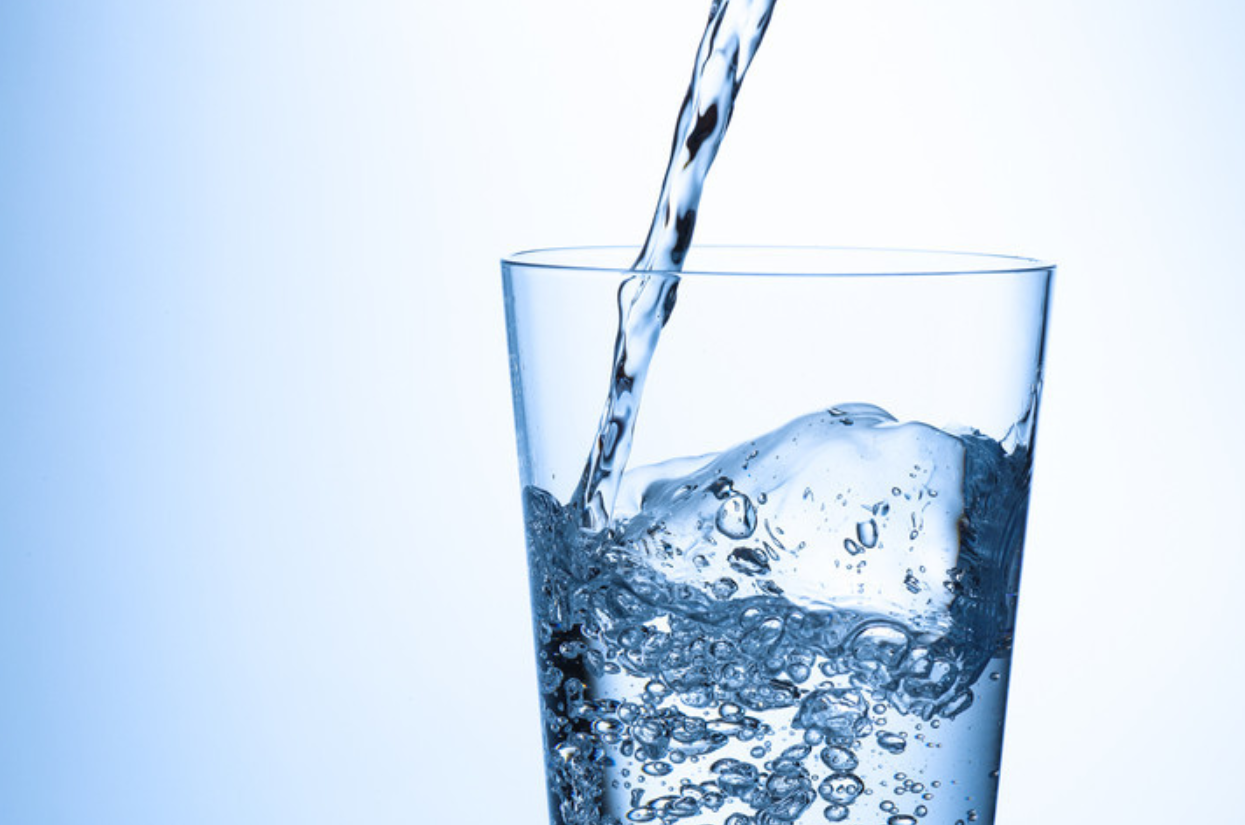
Water can work wonders for your health. The liquid comprises about 60% of our body weight and allows our internal organs to perform at their best. Water regulates our body temperature, keeps our joints lubricated (润滑) and carries nutrients to our cells. Water also provides moisture to skin. Even mild dehydration (脱水) can be a physical stressor to the body. If we’re not adequately hydrated, we may loss of appetite and may find it difficult to concentrate and perform physical tasks, like carrying groceries or lifting weights. So it’s important to drink water. But how much is enough?
The Institute of Medicine recommends that women aim to consume 2.7 liters of fluids (液体) daily, and men drink 3.7 liters. But that recommendation doesn’t focus on water specifically. Rather, it includes all fluids and water-rich foods, including fruits, vegetables and soups. Considering that about 80% of our water intake comes from fluids and about 20% from foods, that breaks down to a daily goal of about 9 cups of fluids for females and 12.5 cups for males.
“It’s a very general recommendation,” explained Melissa Majumdar, who pointed out that factors like activity level, body composition and even climate all play a role in one’s water needs. “If you are a long-distance runner and lose a lot of fluid through sweat, particularly in hot conditions, you will need much more water than a weekend warrior who is doing a short jog in the gym.”
While water is often the main choice for many people, other drinks can also be included as part of your daily fluid intake, such as milk, soda water and even coffee and tea. While it’s a misconception that coffee and tea cause extra fluid loss from the body, alcohol can increase the risk for dehydration. The recommendation accounts for water-rich foods, too, like watermelon, oranges, apples, grapes, lettuce and cabbage.
Since water is vital to our daily functioning, you might be wondering if there is a benefit to drinking more water. But experts say contrary to what many people believe, exceeding our fluid needs provides no additional benefit.
原创编写 版权所有 侵权必究! 每日更新 个性化阅读 英语飙升!
1.What’s the first paragraph mainly about?
A The functions of body temperature.
B The contributions of human organs.
C The importance of drinking water.
D The influence of climate change.
解析:选C。C段落大意题。根据第一段关键句子“Water can work wonders for your health.”“So it’s important to drink water.”等可知,第一段主要介绍的是喝水的重要性。故选C。
2.How much water is recommended for Lucy, a female college teacher?
A 2.7 liters.
B 3.7 liters.
C 12.5 cups.
D 9 cups.
解析:选D。D细节理解题。根据第二段最后一句的“a daily goal of about 9 cups of fluids for females”可知,女性每天喝水推荐量为9杯。故选D。
3.What can we know from the passage?
A Common people require the same water consumption.
B Activity type does not affect one’s water needs.
C Coffee can cause extra fluid loss from the body.
D Some fruits can be included as part of fluid intake.
解析:选D。D细节理解题。根据第三、四段内容可知,运动水平、身体成分和气候等都会影响一个人的水需求量,因此普通人的水需求量不同;咖啡和茶会导致身体额外水分流失是一种误解;很多水果,比如西瓜、橙子、苹果和葡萄都可以作为日常水分摄入的一种。故选D。
4.What may the passage talk about next?
A Advice on how much water needed.
B Reasons for avoiding much water.
C Measures to avoid too much water.
D Consequences of lacking in water.
解析:选B。B推理判断题。根据最后一段最后一句的“exceeding our fluid needs provides no additional benefit”可知,超过我们身体需求的水不会带来额外的好处,结合选项可知,文章接下来最有可能讨论为什么。故选B。